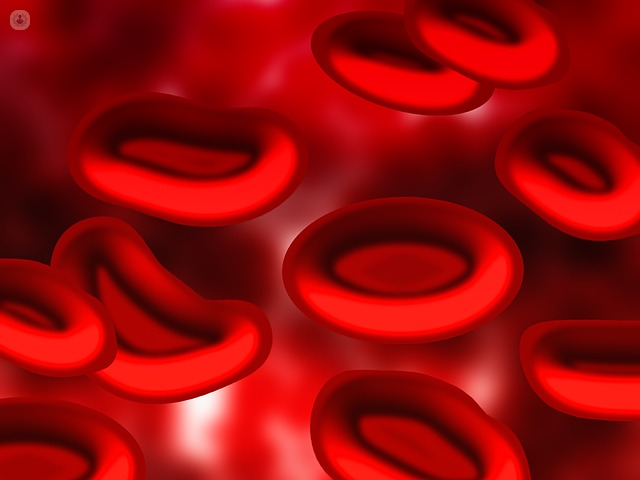Angiopathy
Ms Sophie Renton - Vascular surgery
Created on: 11-13-2012
Updated on: 04-04-2023
Edited by: Karolyn Judge
What is angiopathy?
Angiopathy is a generic term which means disease of the blood vessels, but commonly refers to conditions where small blood vessels are damaged and burst open.
There are two main types of angiopathy corresponding to the ways that the disease manifests:
- Congophilic angiopathy - this condition involves the accumulation of amyloid proteins in the walls of cerebral vessels, which cause an increased risk of stroke. This disease appears when there is a rupture of the affected vessel.
- Diabetic angiopathy involves damage to cells in the blood vessels caused by high levels of glucose. This usually presents as diabetic reinopathy or diabetic nephropathy ‘ damage to the eyes or kidneys.

What are the complications of angiopathy
Diabetic neuropathy can cause progressive damage to the eyes and kidneys if blood glucose levels are not kept under control. Congophilic angiopathy is also progressive, and may result in complications such as dementia, seizures or brain bleeding episodes.
Symptoms of angiopathy
Angiopathy can cause bleeding in the brain, especially in the outer parts of the brain and in the areas of the surface. Symptoms usually occur because the brain tissue is damaged by the brain. The symptoms that bleeding causes depend on the affected area, but the most common symptoms are:
- Sleepiness;
- Headaches;
- Difficulties with vision;
- Difficulty speaking;
- Muscular weakness.
At the moment, there is no cure for this condition, so angiopathy treatment is aimed to reduce the symptoms.
Medical tests for angiopathy
To diagnose angiopathy, the doctor will carry out a physical examination, followed by diagnostic imaging techniques such as:
- Computed tomography scan (CT scans)
- Magnetic resonance imaging (MRI)
- Magnetic resonance angiography (MRA)
- Positron-emission tomography (PET scan).
It is likely the doctor will need to take a sample of brain tissue to diagnose congophilic angiopathy.
What are the causes of angiopathy?
The cause of congophilic angiopathy are unknown. Sometimes it can be transmitted from parents to children, so it can be hereditary. However, there have also been cases where it has developed at an advanced age, especially in people over 55 years old.
Can angiopathy be prevented?
You cannot prevent congophilic angiopathy but you can help prevent diabetic angiopathy by taking the following measures:
- Follow a balanced and low fat diet;
- Stop smoking and drinking alcohol;
- Exercise on a regular basis.
Treatments for angiopathy
There is no effective treatment to treat angiopathy, but there are treatments that relieve angiopathy symptoms. In cases where there is muscle weakness, the treatment may include physiotherapy, occupational therapy or speech therapy. Medications can be given for memory loss and possible seizures.
What specialist treats angiopathy?
The specialists that treat angiopathy are vascular surgeons.


